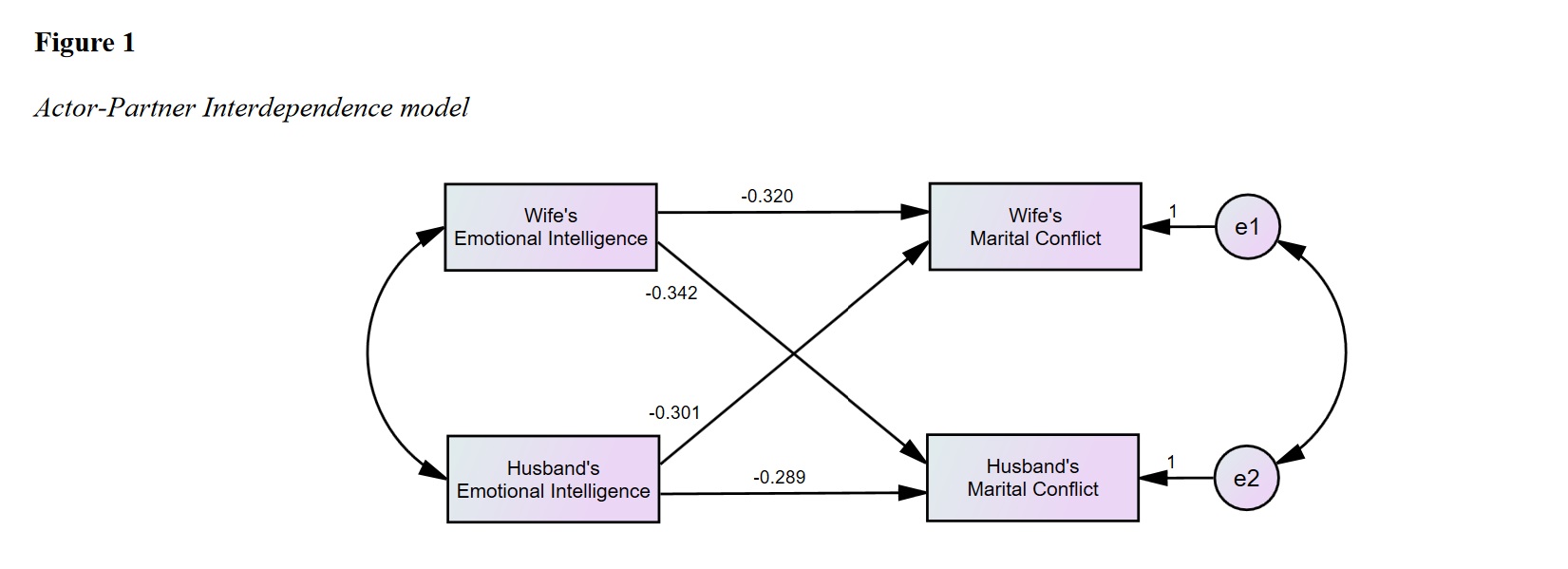The Relationship between Emotional Intelligence and Marital Conflicts Using Actor-Partner Interdependence Model
Keywords:
emotional intelligence, marital conflicts, actor-partner interdependence modelAbstract
This study aimed to investigate the relationship between emotional intelligence and marital conflicts. This study utilizes a cross-sectional design to examine the relationship between emotional intelligence and marital conflicts. The participants were 100 married couples who were recruited through convenience sampling from different regions of Canada. The inclusion criteria for the study were that the couples had to be married for at least one year and have no history of mental illness. The participants were asked to complete the EQ-i questionnaire, which measures emotional intelligence, and the MCQ questionnaire, which measures the marital conflicts. The questionnaires were completed by both partners separately, and the responses were matched based on the couple's identification code. The data was collected through an online survey platform. The data analysis was conducted using the Actor-Partner Interdependence Model (APIM). The results for the APIM indicated that the husbands’ emotional intelligence (ß= -0.289, P<0.001) as well as the wives’ emotional intelligence (ß= -0.320, P<0.001) exhibited a significant actor effect on their marital conflicts. Similarly, husbands’ emotional intelligence (ß= -0.301, P<0.001) as well as the wives’ emotional intelligence (ß= -0.342, P<0.001) exhibited a significant partner effect on their spouses’ marital conflicts. The present study highlights the importance of emotional intelligence in romantic relationships and provides insights for clinicians and researchers working with couples to improve their marital relationships.
Downloads

Downloads
Additional Files
Published
Issue
Section
License

This work is licensed under a Creative Commons Attribution-NonCommercial 4.0 International License.






